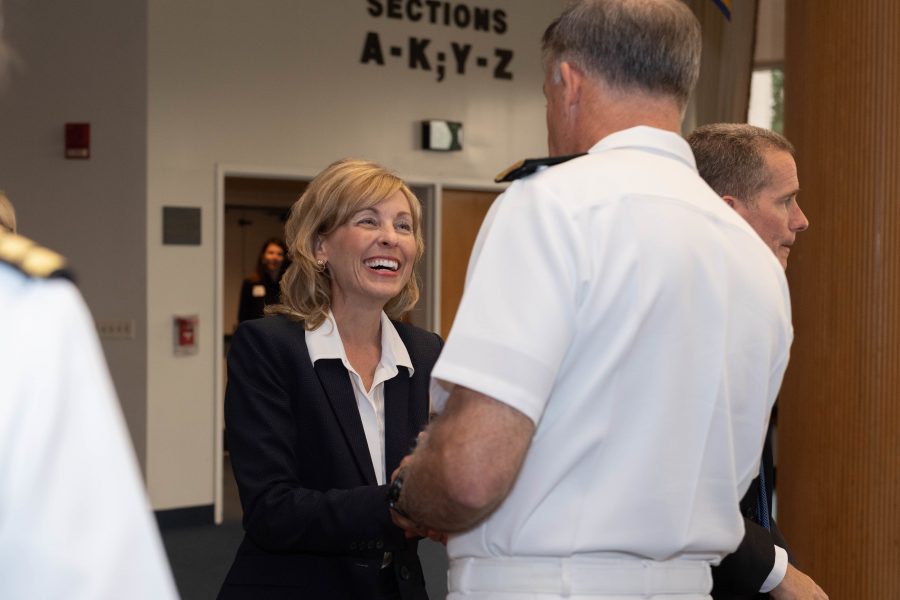The leaders of eight major defense contractors are urging the White House and the Pentagon to find more money to mitigate unexpected costs caused by the coronavirus pandemic, warning of grave harm to national security.
In separate July 7 letters to Ellen M. Lord, Pentagon acquisition and sustainment chief, and Russell Vought, acting director of the Office of Management and Budget, the industry leaders said they’re worried they will need to pull funds away from modernization and research and development to offset the effects of COVID-19 on the defense industrial base. While the Coronavirus Aid, Relief, and Economic Security (CARES) Act provides for such reimbursement, Congress didn’t appropriate the money, and the Pentagon may have to find the cash elsewhere.
Signing the letters were Tom Arsenault, chief executive officer of BAE Systems; William M. Brown, CEO of L3Harris Technologies; Leanne Caret, CEO of Boeing Defense, Space & Security; Scott C. Donnelly, CEO of Textron; Gregory J. Hayes, CEO of Raytheon Technologies; Phebe Novakovic, CEO of General Dynamics; Mike Petters, CEO of Huntington Ingalls Industries, and James D. Taiclet, CEO of Lockheed Martin Corp.
The executives said they have kept workers with critical skills who couldn’t actually work in factories on the payroll, provided cash to subcontractors, and taken other steps with the expectation that they would be reimbursed.
Reimbursement costs are “well beyond the [Defense] Department’s ability to fund without seriously jeopardizing ongoing modernization efforts,” said the letter to Lord. The contractors cited her estimate that for just one company, “impacts … were up to $1.5 billion.” The contractors plan to send Lord their own estimates of the monetary effects on their companies and supply chains by July 10.
Notably absent from the signatories was Kathy J. Warden, CEO of Northrop Grumman. Warden, in a results call with analysts earlier this year, said her company is trying to absorb as many COVID-19 costs as possible.
Lord, in June 10 testimony before the House Armed Services Committee, said heading off the problem requires a block of funds in the fiscal 2021 defense appropriations bill in “the lower double-digit billions” to handle the claims. If the funds don’t come through, Lord said modernization and readiness accounts will suffer. The Pentagon has yet to receive claims from defense companies as they try to “more clearly understand what the process is,” Lord said. “We are working with them on the criteria.”
There are other company-incurred expenses the CARES act doesn’t cover, the CEOs wrote. These include “travel restrictions, international and domestic facility closures, social distancing within facilities, the purchase of personal protective equipment, sterilization costs, and financial impacts associated with manufacturing and supply chain disruptions.”
Without another stimulus package, such claims would also have to be reimbursed “from existing DOD topline resources,” they said. They rejected the idea that defense primes can simply absorb the costs and warned that failure to address the problem will stunt America’s ability to compete in security with Russia and China.
They applauded Defense Secretary Mark T. Esper’s efforts “to secure the needed funding in the next stimulus bill to address this unique situation.” Failing to refund the defense industry would lead to “significant job losses in pivotal states just as we are trying to recover from the pandemic,” the executives told Vought.
The CEOs urged Vought to support an emergency supplemental request to cover the expenses as Congress works on its next pandemic-related spending package.
